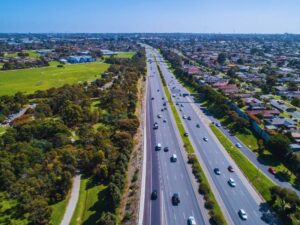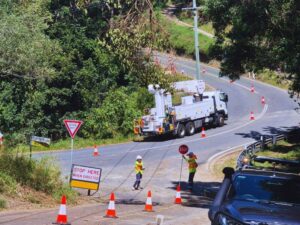This blog addresses the misconceptions about traffic controller salaries in Australia, highlighting the true nature of their earnings, the importance of their role, and the rigorous training they undergo, as clarified by the Traffic Management Association of Australia (TMAA).
Introduction
The perception of traffic controllers’ salaries has recently been distorted by sensational media reports. This blog aims to demystify these misconceptions by presenting facts from the Traffic Management Association of Australia (TMAA) and shedding light on the essential role and actual earnings of traffic controllers.
Media Misconceptions vs. Reality
Recent articles in the media have touted extraordinary earnings for traffic controllers, with figures suggesting up to $3,000 a week. However, these figures represent outliers, not the standard. Matthew Bereni, CEO of TMAA, criticises these reports for their misleading portrayal, which sensationalises rare scenarios and overlooks the typical earnings and conditions of the profession.
Understanding Traffic Controller Salaries
Contrary to the claims of earning thousands weekly after minimal training, the average salary for traffic controllers, as reported by Seek.com.au, ranges from $55,000 to $75,000 annually. This variance is due to factors like overtime, night shifts, and work on public holidays, which are compensated by penalty rates.
The Critical Role of Traffic Controllers
Traffic controllers ensure the safety and efficiency of roadways under often hazardous conditions. Their work is far from trivial; it requires comprehensive training, a strong commitment to safety, and continuous adherence to stringent protocols.
The Harmful Impact of Misleading Journalism
Sensational reporting not only misinforms the public but also undermines the professionalism of traffic controllers. This misrepresentation can affect the recruitment of new professionals and the public’s respect for this crucial role.
TMAA’s Advocacy for Truth and Professionalism
The TMAA stands as a national body advocating for the traffic management industry, emphasising the need for accurate media representation and supporting the professional development of around 200,000 traffic management professionals across Australia. For more details on TMAA’s stance, read their official media release.
Conclusion
It is vital to recognise the professionalism of traffic controllers and understand the realistic aspects of their compensation. By dispelling myths and highlighting true practices, we can appreciate the dedication and skills of those managing our roads.
FAQs
Q1: What is the real salary range for traffic controllers in Australia?
Traffic controllers typically earn between $55,000 and $75,000 per year, varying with job conditions and hours worked.
Q2: Why do some media articles report very high salaries for traffic controllers?
These articles often highlight atypical cases to attract readers, not accurately reflecting the norm in the industry.
Q3: What qualifications are required for traffic controllers?
Traffic controllers undergo significant training to ensure they can manage traffic safely and effectively, which includes obtaining specific safety certifications.
Q4: How does TMAA support traffic controllers?
TMAA promotes safety, innovation, and proper industry representation, ensuring traffic controllers are respected and well-supported professionals.
Q5: Can traffic controllers really earn over $100,000 a year?
While possible, such earnings are not common and usually result from extensive overtime under specific conditions like night shifts and public holidays.





